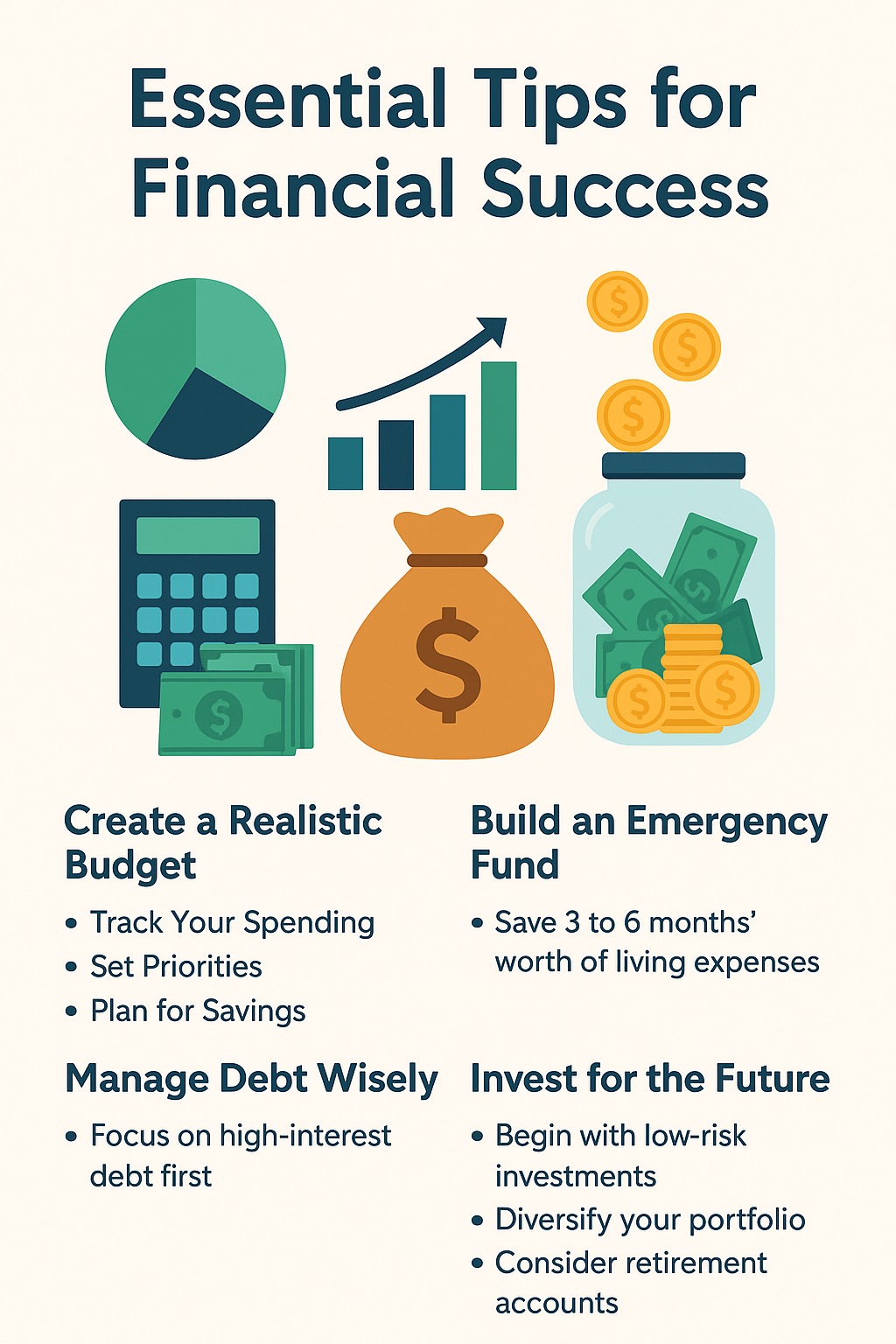Achieving financial success isn’t about luck — it’s about smart planning, disciplined habits, and consistent action. Whether you’re just starting your career or working toward long-term wealth, mastering the basics of financial management is crucial. In this guide, we’ll explore essential tips to help you build a solid foundation for financial success and long-term stability.
1. Create a Realistic Budget
One of the most powerful tools for financial success is a well-structured budget. A budget helps you track income, control expenses, and identify areas where you can save more effectively.
How to Build a Budget That Works
-
Track Your Spending: Start by noting every expense for a month to understand where your money goes.
-
Set Priorities: Allocate funds for necessities first — housing, food, utilities, and transportation.
-
Plan for Savings: Aim to save at least 20% of your monthly income for future goals or emergencies.
-
Review Regularly: Adjust your budget as your income or expenses change.
A clear budget not only provides control but also helps reduce stress about money.
2. Build an Emergency Fund
Unexpected expenses can derail your financial plans. That’s why having an emergency fund is essential. This fund acts as a safety net during medical emergencies, job loss, or sudden repairs.
Tips for Creating an Emergency Fund
-
Save 3 to 6 months’ worth of living expenses.
-
Keep the fund in a separate, easily accessible savings account.
-
Contribute regularly, even if it’s a small amount each month.
With an emergency fund, you’ll be better prepared to handle life’s financial surprises without going into debt.
3. Manage Debt Wisely
Debt can either help you build wealth or become a financial burden. The key lies in how you manage it. High-interest debt, like credit card balances, should be paid off as quickly as possible.
Smart Debt Management Strategies
-
Focus on high-interest debt first (debt avalanche method).
-
Consolidate loans if it reduces interest costs.
-
Avoid unnecessary borrowing — especially for non-essential purchases.
Controlling debt keeps your credit score healthy and allows more room for savings and investments.
4. Invest for the Future
Saving money is good, but investing is how you make your money work for you. Investing builds wealth over time through compounding returns.
Ways to Start Investing
-
Begin with low-risk investments like mutual funds or index funds.
-
Diversify your portfolio to reduce risk.
-
Consider retirement accounts like 401(k)s or IRAs.
-
Stay consistent and think long-term.
Investing early and regularly is one of the surest paths to financial independence.
5. Continuously Educate Yourself
Financial success is a lifelong journey. Stay informed about new investment trends, economic changes, and money management strategies. Read books, follow trusted financial blogs, and consult advisors when needed.
Conclusion
Financial success doesn’t happen overnight — it’s built step by step. By budgeting wisely, saving consistently, managing debt, and investing strategically, you can secure a prosperous financial future. Remember, the key is consistency and commitment to your financial goals. Start today and take control of your financial destiny!









